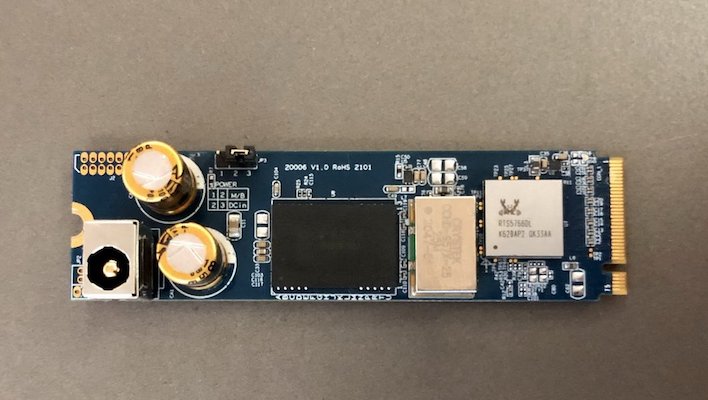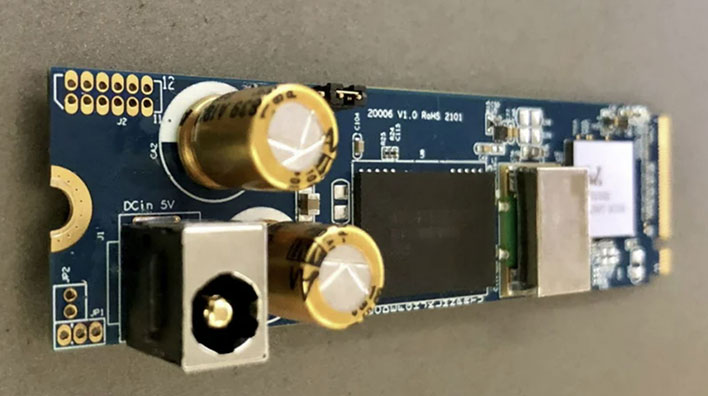If This 'Audiophile Grade' SSD Sounds Like BS, It’s Probably Because It Is

The developer of this device, posted in the Audiophile Style forums, tries to make a good case. The NVMe SSD has supposedly been built from ground up to increase audio quality and provide real 3D sound. If you believe the hype, it will even let you experience audio quality in an experience that only comes from vinyl recordings.
Specifications for the drive include a Crystek CCHD-957 Femto clock oscillator and a pair of Audionote Kaisei 220uf capacitors. These components are definitely key to good audiophile hardware, well-known in the industry. However, they’re known for being used to build DACs, amps, sound cards, and the like.

So, what’s the problem? An SSD is a storage device. It holds your music files, ultimately just a collection of 0s and 1s. Your computer or audio player retrieves the files and sends them through an audio processing unit on your computer. The capacitors and clock oscillator soldered to the PCB can’t change those binary digits into something better.
The only thing that an “audiophile-grade” SSD might offer for an improved sound experience is data transfer speed. After all, if your music files get tied up in bottlenecks by low speed, that will affect audio quality. In that respect, this NVMe SSD should excel; it’s using a storage geometry that provides blazing speeds at the expense of reduced storage capacity. Then again, emerging SSD technology, like Micron’s 176-layer 3D NAND, will better storage efficiency, the same or faster transfer speeds, and lower prices.
At the end of the day, the "audiophile-grade NVMe SSD" is just another modern-day example of snake oil. Sure, it sounds impressive to pack all of those sound components into your SSD, but they simply can’t do anything to truly improve your listening experience.

